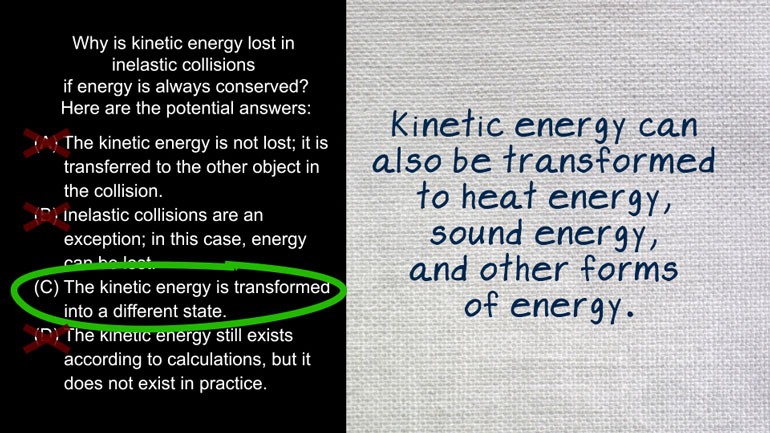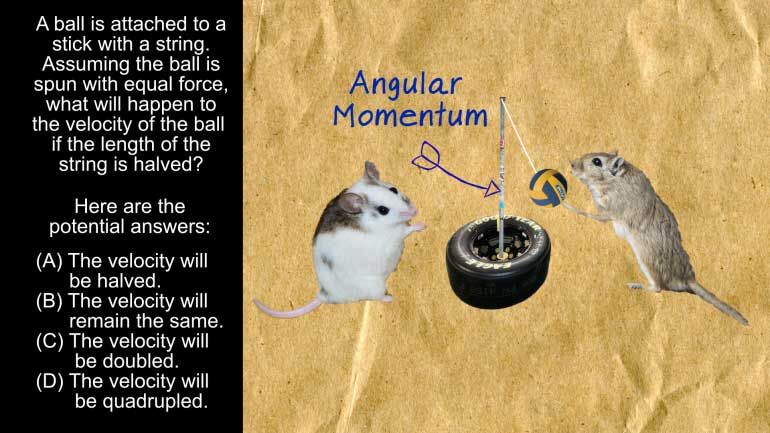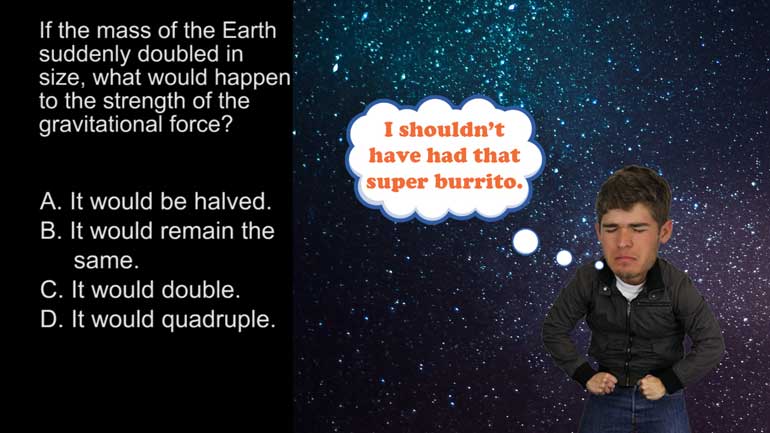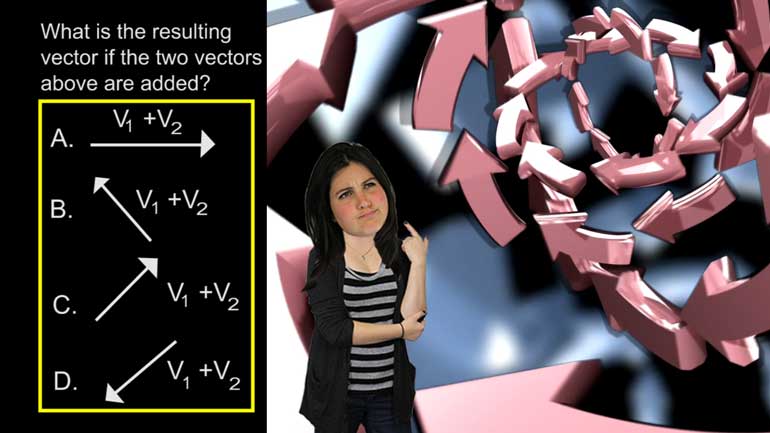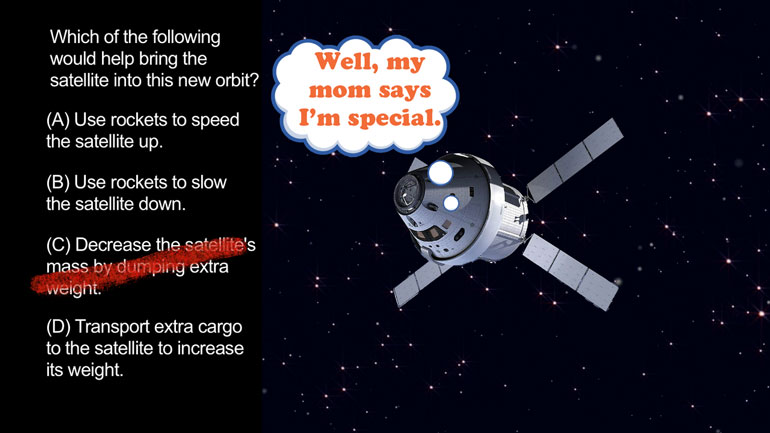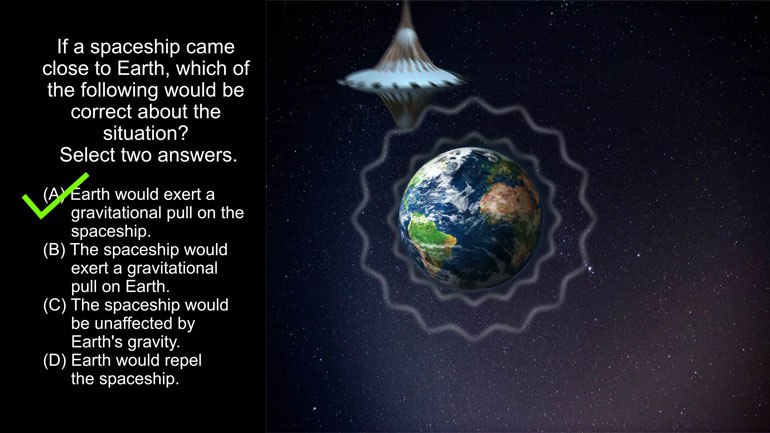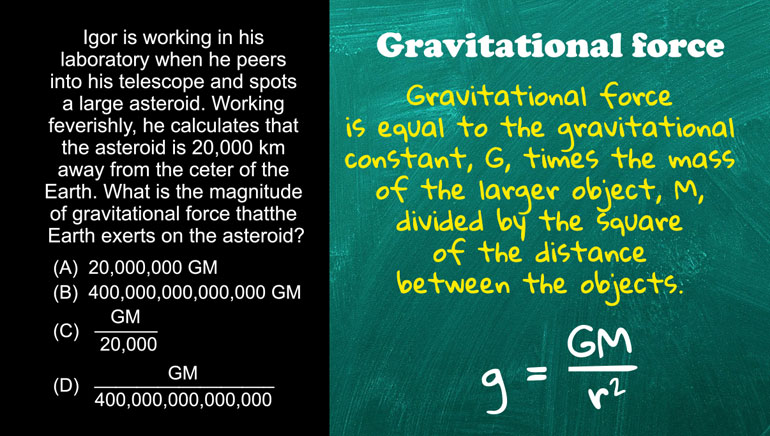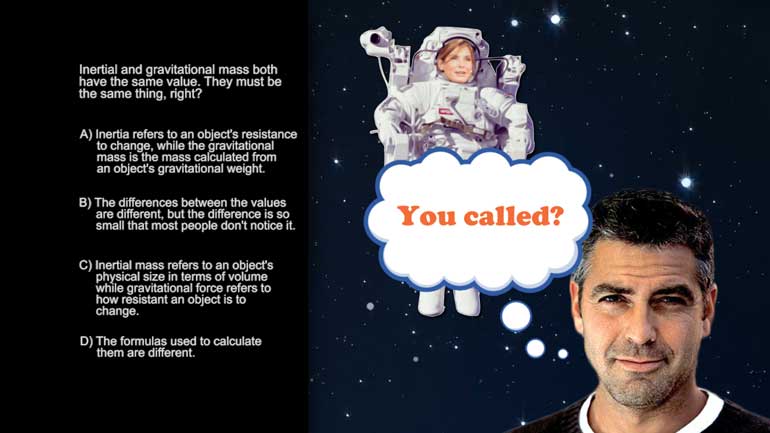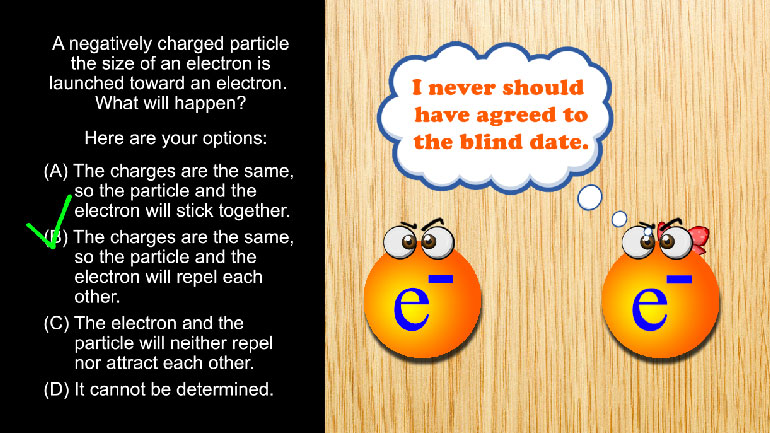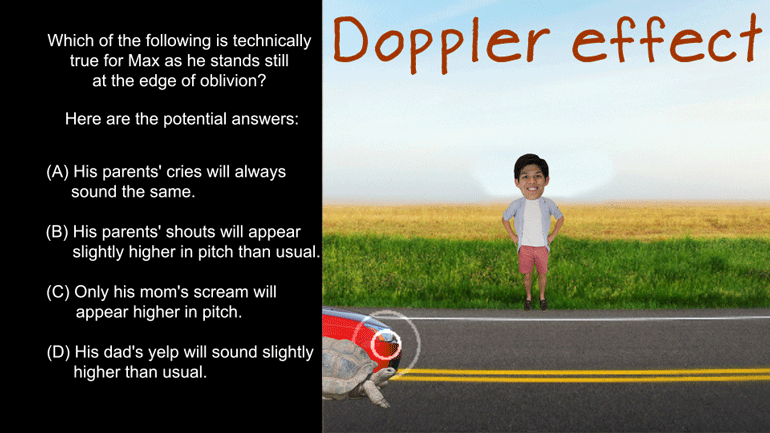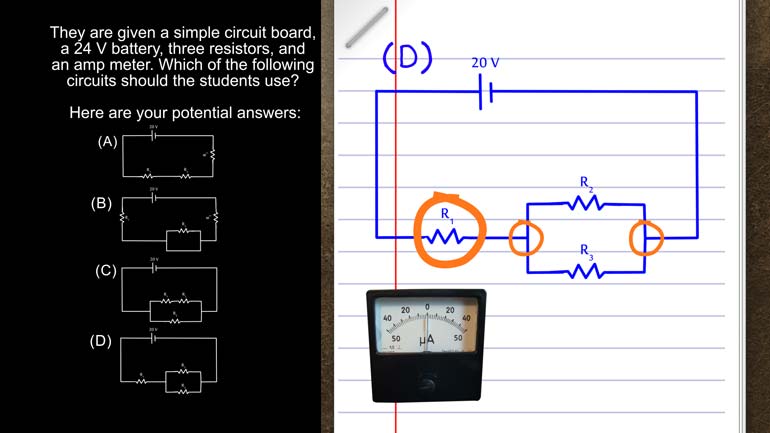ShmoopTube
Where Monty Python meets your 10th grade teacher.
Search Thousands of Shmoop Videos
Engaging in scientific questioning Videos 10 videos
AP Physics 1: 1.2 Changes and Conservation Laws. Why is energy lost in inelastic collisions?
AP Physics 1: 2.1 Changes and Conservation Laws. What will happen to the velocity of the ball if the length of the string is halved?
AP Physics 1: 2.5 Changes and Conservation Law. At what point(s) in this situation is energy lost in any form?
AP Physics 1: 2.4 Fields in Space 239 Views
Share It!
Description:
AP Physics 1: 2.4 Fields in Space. Which of the following would help bring the satellite into this new orbit?
Transcript
- 00:00
Thank you We sneak and here's your shmoop du jour
- 00:05
Brought to you by space junk man The intergalactic police
- 00:08
should really have stricter laws to help produce alien littering
- 00:11
Alright Thanks to space junk a satellite has been bumped
- 00:14
from its previous circular orbit into a new circular orbit
Full Transcript
- 00:18
The technicians on the ground report that the satellite is
- 00:21
now orbiting at a distance ten percent greater than it
- 00:23
was previously Which of the following would help bring the
- 00:26
satellite into its proper orbit And here the potential answers
- 00:30
rockets to speed it up Slow precinct transporting cargo All
- 00:36
right so we've got a satellite in orbit and the
- 00:38
distance of its orbit has changed What we need to
- 00:41
understand is how the mass and velocity of the satellite
- 00:44
affect its orbital distance Well the equation used to calculate
- 00:47
the velocity of an object orbiting the earth is velocity
- 00:51
squared equals the gravitational constant times mass divided by the
- 00:56
objects distance from the earth That looks like this harry
- 00:59
thing right there It's important to remember that the mass
- 01:02
in this equation isn't the mass of the satellite it's
- 01:06
the mass of the earth the mass of the satellite
- 01:08
Doesn't influence this equation so we can eliminate options See
- 01:12
indeed Taking a look at the equation basic math tells
- 01:14
us that if the distance increases well velocity decreases We
- 01:19
can also rearrange the equation to solve for the distance
- 01:21
And that would look like this We're looking at it
- 01:24
this way We know that if the velocity increases the
- 01:27
distance decreases Got it So option a is the correct
- 01:32
answer Kind of power of the jets and lower the
- 01:34
satellite back to where it belongs But let's cover our
- 01:36
bases here We can also think about this question in
- 01:40
terms of proportions If we have our original equation velocity
- 01:44
squared equals g times mass divided by distance Then we
- 01:49
can compare that to the velocity and distance of the
- 01:53
bump satellite let's Make that equation Velocity b for bunk
- 01:58
squared equals g times mass divided by distance Be now
- 02:03
let's Put one over the other to create the proportion
- 02:07
like that And it'll look a little something like this
- 02:10
Yeah And you can rearrange that to produce the correct
- 02:13
velocity Well this means that the original velocity is larger
- 02:16
than the bump velocity because the bump distance is larger
- 02:19
Than the original distance as was the case here Sometimes
- 02:22
there are multiple ways to solve a problem so it's
- 02:24
important Remember that if we do get stuck on a
- 02:26
problem to see if there's another approach we can take
- 02:29
to find an answer Sometimes our brains can lock on
- 02:31
a one thing and not see that other past Khun
- 02:33
get us to the promised land Stepping back and taking
- 02:37
a fresh look helps clear things up And speaking of
- 02:39
clearing things up well how about holding these littering aliens
- 02:42
a little more accountable and it's a mess up there
Related Videos
AP Physics 1: 2.5 Changes and Conservation Law. At what point(s) in this situation is energy lost in any form?
AP Physics 1: 1.4 Waves. Which of the following is technically true for Max as he stands at the edge of oblivion?
AP Physics 1: 1.4 Changes and Conservation Laws. Find the current across R2.
AP Physics 1: 2.4 Changes and Conservation Laws. Which of the following circuits should the students use?
AP Physics 1: 1.5 Waves. What can possibly occur when the two waves reach each other?
